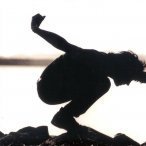Search the Community
Showing results for 'alcohol'.
Found 17,501 results
-


Depression and Anxiety Post-Op
Tracy1978 replied to hdbuttahz's topic in Gastric Sleeve Surgery Forums
I too suffer from anxiety an depression; I have for at least 20 years. I've been on several medications since diagnosed, but the one I remain on consistently is Zoloft. I take 200 mgs a day, which, from what I understand is a pretty high dose. I also have Xanax and Valium to help control my panic attacks. I'd be lying if I didn't say I self medicated with alcohol as well pre-op. It was hard getting it under control but I did. Since surgery, 9 weeks ago today, I am still on my medication. However, I haven't needed the Xanax or Valium. I feel like the exercise I am getting is helping me cope with the stress to the point that I don't need those medicines anymore. Also, seeing weight come off has really helped boost my morale overall. I haven't tried to lessen my Zoloft dose, but as things progress I plan on trying. Over all I feel better both mentally and physically. -
Hey everyone I’m about 7 weeks out down 31 lbs since about 2 weeks ago. Don’t really weight myself outside of the doctors. Anyways. How many people eat whatever they want and still lost all their weight. My doctors has me on no restrictions as far as my diet. My NUT said it’s about Portion control and not really the foods you eat. I’m still trying to get my liquids down, my protein needs to be better but the shakes make me vomit and sugar alcohols give me the runs. Been on real food for about 2 weeks with no problems but I don’t want to mess myself up. They told me stay off this site because listening to others will ruin me but to just listen my body. It knows what it an handle. Still like input however. Do you diet or no ???
-


Not doing great in pre-op diet
vanessagotsleeved replied to sleevemebaby7781's topic in Gastric Sleeve Surgery Forums
I was pretty bad pre-op. I did cut out alcohol though (was a big drinker). But I had a birthday, kids parties and long work hours where I forgot to take the shakes with me and ended up eating toasted cheese sandwiches! One day I went allll day without eating and ended up eating a burger... I felt terrible so then I had about 5 days where I was ‘good’ pre-op. My surgeon was impressed with my liver (phew). Haha. I lost only a tiny amount of weight which I think was just the cutting out of booze. I also took ‘vegetable’ capsules which are full of antioxidants supposedly good for the liver. Don’t be too hard on yourself. I’m actually glad I gave into my burger craving pre operatively.... it’s a long time until I can have one again! Good luck. You’ll be fine :) -


Intermittent Fasting Daily Menu/Results/Accountability
FluffyChix replied to FluffyChix's topic in Post-op Diets and Questions
Ok, so I've been reading for close to 18months. I closely follow successful vets both here and elsewhere on the internet and they all have a few things in common: 1. As they neared goal, weight loss became very tough and hard-fought. They weren't just eating abstemiously (and near gold-star perfect), they were also exercising (cardio and strength). 2. They all were eating between 600-800 cals during the losing phase. 3. Most were keeping high glycemic carbs, treats, and alcohol out of the equation. 4. They all did better than the national averages for their weight loss surgery--MUCH MUCH better--like some are below goal and maintain that weight. 5. They all talk about the rules of weight loss/maintenance/starvation mode being different for WLS pts than the rest of the world--don't know about that one--can only surmise it "may" be true judging by their n=1 anecdotal evidence. They all say that despite keeping things low carb, low fat, super low cal during weight loss, they all have been able to move up to at least 1000-1400 cals/day. 6. But they are STILL low carb (the ones who are maintaining) most of the time with occasional time off for bad behavior. And when the scale starts up, they nab it at 2-3lbs (or a 5lb window) and resume the 600-800 cal per day jag until they are back to the bottom of their weight range for maintenance). (That sure sounds like some strategic IF to me. hehe) **** Here's my graph over the past year. It's slow going and not nearly as steep as yours!! In general I'm averaging about 820 cals/day and right at 60g protein. I do walk daily, but have only started strength training. I think that is going to be important to us to maintain lean body mass--especially as we get close to goal. BTW, my cals are up the past 2 months from my previous months where I averaged 600-700cals per day. Since IF, I still have about the same average cals/macros! Weird huh? But I've been able to have much more "free" days where I am not pre-occupied with doing the numbers and am having a LOT of um shall we say "poor behavior"? LOL--something that I'm gonna cut down on dramatically now that birthday month is over lol. But the diff is, that I've lost more weight so far this month! I am pretty on target to lose about 10lbs this month. Last month I only lost 2.8lbs with the same cals and macros! Holy *kitten* right? So something is working. I bet if you go back and look at the numbers you'll see month to month, you've done better this month? And I'm hopeful we will both be able to have clean increases of cals/macros as we hit maintenance without having to go crazy every day. And when we do splurge, we have the assurance that IF will get us back to the bottom of our weight range fairly quickly. -


Intermittent Fasting Daily Menu/Results/Accountability
FluffyChix replied to FluffyChix's topic in Post-op Diets and Questions
I had a hungry hungry heffer day yesterday. Gosh I felt like a bottomless pit!! I do feel pretty successful in navigating it though. Here's how I triumphed. I'm writing this down so that I remember it. (I did have a "slight" altercation with pita chips leftover from my birthday--but the up side is I managed to limit them to 9=1serving and combined them with a complex meal rather than just shoving them down my piehole slathered in butter or cheese--something guaranteed to make me hurl in 30 minutes or less.) 1. Managed to do an 18 hour fast yesterday. 2. Made great food choice for lunch. 3. Made an almost great food choice for dinner rather than eating a chili cheese coney with fries at the ballpark like I was craving--and which would have made me hurl in 30 minutes or less. 4. Limited my allotted popcorn at the park from 4 cups for the game to about 2 to maybe 2 1/2 cups (I guestimated on the high side at 3 cups). 5. No alcohol despite wanting a beer or a glass of wine. 6. Exceeded my fluid goals for the day mostly from water, green tea, black decaff coffee. 7. Exceeded my walking for the day with 12000+ steps + did upper body free hand weights and actually jogged for 2, 1 minute intervals. 8. Did not stop for fast food nonsense or a drink after the game like I was craving. 9. Did not eat a heavy meal cooked at home late night like I was craving. 10. Appeased myself with 2oz of PP in decaff as a "dessert/sleep aide" even though it was 11pm--that's better than a low carb breakfast taco with bacon egg and cheese!! Totals for the Day: 865 cals; 63g protein; 46g fat; 60g carbs; 11g fiber; 49g net carbs; 14g sugars Despite doing all those things I did wake up to a 2.2lb up-tick on the scale this morning. I'm sure it was cuz I had 60g of total carbs and about 49g net carbs for the day. My pattern is that I go down, hit a new low, then bounce around above that number before again stepping down to a new low. So it's a jagged, spiky stairstep in a downward progression. So I won't sweat it. I also know I have bad lymphedema in my left arm as of last night, and that may account for both pounds. So I will chill out about the scale and just live another dream day today. I'm only gonna do a 12/12 today and actually enjoy a brunch (homemade). I'll keep carbs lo-low and really munch the protein and see if that gets my hunger back in submission! Hope everyone is having a great weekend so far!!! Hugs all around!! -
I really need some alcoholic beverages right now had a very rough week and need to relax a little any recommendations on what we can drink Sent from my SAMSUNG-SM-J727AZ using BariatricPal mobile app
-


Intermittent Fasting Daily Menu/Results/Accountability
FluffyChix replied to FluffyChix's topic in Post-op Diets and Questions
I think maybe you and I have similar triggers. Dayum, I wouldn't wish that on anyone! haha! It really sounds like you're at burnout phase. ((hugs)) I think you should try doing your moderate approach to IF like 14-16hour fasts, then eat regularly, following your surgeon's rules: protein first, low glycemic veg and fat, plus carbs at the end if you still have room or want them and see how it goes. Quit ordering off the appetizer menu, quit ordering chicken if that's not what you want...And keep your cals in the 800-1000 range-ish. No beer or alcohol. *sniff* Cuz you know, misreh loves company! And keep track of it here! I think that's the cool thing about this thread is that we are kind of n=? how many are doing IF from this thread and we should all post our experiences so others might learn or have a light bulb moment. You know? I def think your weight gain is beer related and if you go clean for the next 3-4 days you will be down those 4 and who knows, maybe another one as well? UGGGGGH on the late night food runs! I swear I thought about you as we were sitting in Taco Bell last night. LOL. -


Intermittent Fasting Daily Menu/Results/Accountability
sillykitty replied to FluffyChix's topic in Post-op Diets and Questions
I'm going through a very unmotivated phase right now. I just want to eat food I want and not lean proteins and leafy greens. And I'm paying for it, ugh. I'm up over 4 lbs from my low I'm hoping some of that is from alcohol. I had quite a few beers the other night, that was followed by a late night fast food run. (I was with colleagues, not my idea, but I participated ). I don't know right now, I really don't feel like getting back on the chicken breast train. Doing at least moderate IF is usually pretty easy. I'm rarely hungry before noon. But the whole good choice thing, meh ... So I'm thinking of doing a little experiment. What if I eat what I want for the most part. But I have no alcohol, and make sure I get in my fluids. What will happen to my weight? My cals should still be well under 1000. I'd like to know where I can find that line between losing, maintaining and gaining. I'm not sure why I am suddenly so unmotivated. Is it just "diet" fatigue? Is it typical as people get near goal? Is it because of all the positive feedback I've gotten recently on how I look? Is it because my plastics I had wanted this fall is now postponed until who knows when because of my work schedule? -
Whey Isolate should be as lactose free as Fairlife. Milk based proteins (whey) come in 2 forms, Concentrate and Isolate. Concentrate is just as it sounds, concentrated milk protein. Isolate is a super filtered form of whey and removes most if not all lactose. It's possible the cause isn't the protein but some other ingredient like sugar alcohols which are known to cause issues in some folks. Try another brand of Whey Isolate before you write off Whey proteins as the cause. You can get samples typically at most supplement places.
-
Sure! It isn't mine-as-in-I-created-it, but it's mine-as-in-I-made-a-copy-of-it (so I get to keep it even if they take the website down): https://www.bariatricfoodie.com/niks-protein-pumpkin-custard/ My recipe notes, which you are welcome to ignore 😁: I made it with sweet potato instead of pumpkin (because I was halfway through making it when I realized my can of pumpkin was dented), and it was still pretty good. (Taste: great. Texture: a little dry. But that's always how sweet potato pies seem to me.) I'm not doing that again, though; I want pumpkin! I do add more powdered ginger and freshly-grated nutmeg .. and probably cinnamon, too, on top of the pumpkin spice it calls for. They have a brand of protein powder they prefer, I think, for this, but I used vanilla Quest and came out fine. I also know some folks on here can't deal with sugar alcohols, but right now I can. So I did half xylitol, half Splenda, and that was very good. (I have to mix fake sugars. They all taste gross, alone, in the quantity you'd use for a recipe. I don't think there's any amount of stevia I can use and not have it come out tasting like aluminum to me, which is a bummer. Taste-wise, I could do all-xylitol, but at some point xylitol punishes you for over-consumption, so I didn't want to risk it.) Anyway, enjoy! Also, that site has several pumpkin-themed recipes, so browse around and see what looks good to you!
-
I am a bit high strung/nuts and enjoy a good adventure. Gaining a bit of weight sort of thwarted my adventuring a bit, but it’s starting to come back as the weight comes off. Now to just figure out shenanigans to get into that don’t require alcohol... 😂
-


Intermittent Fasting Daily Menu/Results/Accountability
sillykitty replied to FluffyChix's topic in Post-op Diets and Questions
Awfully quiet in here .... So, I'll start with the good news ... yesterday was a good IF day, ate within a 6 hr window and hit protein and supplements, but not fluids. I even went grocery shopping while fasting and stayed strong. (I rarely grocery shop anymore, either quick TJ's run, or have them delivered) So for the bad ... I'm just going to throw this weekend out the window. Met a friend for lunch, I had Fried Dumplings, Noodles w Black Bean Sauce (Jajangmyeon), Fried Shrimp w Chili Sauce & Cheese Corn (yeah, really called that). I'm currently making Bacon Wrapped Jalapeno Poppers for a Fight Night/Mexican Independence Day party tonight. There will be a taco guy there that makes authentic El Pastor, on the spit. There will be lots of alcohol, unsure if I will have any. And then tomorrow I have brunch plans, and am craving a Michelada. So basically, this weekend is f'd Oh, and I went grocery shopping, again (ran out of bacon for the poppers), and was not so strong. Combo of interesting items and cheap prices are my downfall, thanks Aldi! -
I don't think there's any real need to pay for a bariatric keto program unless you specifically need the hand holding. Low carb keto principles are all over the web. But for most of us, the higher fat levels don't work either keeping us from losing fully or making us nauseated. I just keep my macros very simple. Let's say for instance, that most people who are consistently losing are keeping calories in the 800-1000cal range. So the macros for 1000cals on a female of normal construction (ie not a body lifter, not large framed 6foot. I'm talking average 5'4" female): 30% Protein (75g protein); 60% Fat (67g fat); 10% Carbs (25g carbs--from low glycemic veggies, nuts, seeds, dairy, and low glycemic berries in small amounts). There are NO required carbs. None. Cuz the liver can make every spec of glucose needed for those few cells that require glucose and that can't run on ketones. Otherwise, fat from your body (and a tiny bit from your diet) supplies the ketones needed for fuel for your body. (For me, I have to keep fats lower cuz it makes me nauseated. So my most recent macros are more like: 30% Protein (75g prot); 50% Fat (56g); 20% Carbs (50g carbs)--My carbs usually around 30-40g whole per day and once you subtract out fiber, they are closer to 25-30g. I am def. in ketosis. But honestly most days I don't make 1000 cals either. I do get my protein range from my RD of 60-75g protein though. It's pretty simple. Lean meats/proteins, limit cheese and processed meats a "tiny" bit. Lots of leafy greens and low glycemic veg and a tiny bit of low carb berries if desired. Nuts/seeds/avocado/healthy fats. Healthy dairy if carbs and cals allow. And stay away from legumes, grains, sugar and as much sugar alcohols as possible. Eat cleanly and shop from the outer isles. Drink 100oz of water a day or a little more. Exercise (walk at the very least).
-
Surgery 6/21, down 40 lbs so far, absolutely no issues with anything so far. Going to Disney end of this month, at the 3 month mark, and also have the dining plan. I plan to enjoy myself but still try to make certain I get enough protein and exceeed my daily water needs. I’m taking my Genepro protein powder and some sugarfree pudding cups (the non-refrigerated ones), so if I don’t feel like I made my protein for the day it’s easy enough to add 10-30g of protein to a cup of pudding before bed. Since you’re with so many others you won’t be wasting food when you can’t finish more than a small portion of your meal cuz they can help out lol. Especially the free dessert with dinner. Enjoy a bite or two, if your tummy can handle it than share with others. Same with the alcohol. I don’t drink but get a wine with my dinners and my husband can enjoy it after I try a sip or two. I’m at least 50-60 lbs own from last trip there a few years ago and looking forward to not worrying about if I’ll fit ok in the rollercoaster seats. Last time missed out on one of them. Stay safe in the storm right now, Good luck with your surgery and have an awesome vacay!!
-


Acid Reflux Concerns - Oct. Sleeve Surgery
JustKeepSwimming replied to JustKeepSwimming's topic in POST-Operation Weight Loss Surgery Q&A
i have had severe reflux that has made me spring up to a sitting position from my sleep. That has happened after having a heavy meal and consumed alcohol (especially tequila or red wine). I don't do that anymore, thus I have not had this happen. I do have occasional minor acid reflux. My surgeon and the pre-op info so far does not indicate a endoscopy test in the horizon. Perhaps I should look into that. My preference is for sleeve surgery. Thank you for your responses! -


I had surgery in india no follw up appoiment
Matt Z replied to DKR311's topic in Gastric Bypass Surgery Forums
isn't everything you listed major "no-nos" for diabetics? A healthy meal plan for people with diabetes is generally the same as healthy eating for anyone – low in saturated fat, moderate in salt and sugar, with meals based on lean protein, non-starchy vegetables, whole grains, healthy fats, and fruit. Foods that say they are healthier for people with diabetes generally offer no special benefit. Most of them still raise blood glucose levels, are more expensive, and can also have a laxative effect if they contain sugar alcohols. Sounds like you are WAY off what you should be eating for your surgery AND your medical conditions. Find a doctor local to you and get this taken care of. The internet is not the place for this type of issue/question, you need to speak to a medical professional. -


4 months post op--disney??
GreenTealael replied to Ivy Joel's topic in Gastric Sleeve Surgery Forums
It's totally individualized results... I don't consume alcohol so I can't help you there Generally you'll want to follow your post surgical plan to the letter and discuss any modifications to it with your team, but really wait until after surgery to consider the all of the details... -
Thats awesome thank you. They also bought the food package that includes 1 alcoholic drink. Im curious as to whether i will even be allowed to drink it. I know someone who got a bypass and she gets drunk off 2 drinks, so i know if i do drink not to have more than 1. But can i even have 1, 4.5 months post op? Or is that different for everyone too? Sent from my SM-G955U using BariatricPal mobile app
-
I just take 2 flintstone complete vitamins once a day. My health is perfect, my numbers are perfect, all hair loss has reversed and my hair is thicker than it used to be! Things I can’t do anymore: -drink soda out of a can quickly - but I can sip on it over ice just like anyone else.👌 -drink alcohol heavily or quickly - unless I don’t want to remember the night 🤦🏼♀️ -binge on large quantities of carbs/sugar without throwing up🙌🏻 Hope you’re feeling well! I remember it took me 3 months to feel energy, 6 months to feel normal, and 1 year to wish I had more restriction again lol.
-
I was sleeved on August 14 and at this point there is no way I could even get a small meal meal or any alcohol down. I'm still struggling to get in my daily protein and liquids. I'm impressed that you're able to even share a small meal!
-
My doctor was crystal clear that drinking alcohol before 6 months post op can have very serious consequences (he would prefer 12 months). He said alcohol acts as an abrasive in the stomach and can wreak havoc on the skin around the staples. I wouldn't risk it. My anniversary is October 11th and I plan on going out, having something simple to eat (soup), but definitely NOT having any drinks.
-
You can’t “reset” your pouch. Pouch reset is a fad diet that was started by someone that wanted to sell products on the Internet. It is bogus and is not necessary. If you’re fighting regain you should go back to the basics and eat dense protein first followed by non-starchy vegetables. Cut out simple carbs, sugar, processed food, soda, alcohol, and fast food. Your pouch/tool is fine and hasn’t stretched, you’re just eating too many slider foods that don’t let you feel restriction. If you’re struggling with emotional or binge eating, see a therapist to work through your issues. Trying to fix this with fad dieting or that mindset won’t work long term as it never did pre-WLS and is not sustainable. It’s about healthy strategies & coping mechanisms now. You can do this! Good luck.
-
I think 7 weeks post op is too soon for alcohol in my opinion. Obviously, if your doctor thinks it is OK, then go for it. However, we are still healing at that time and I feel like its just too soon. And, I want to warn you, that one cocktail could land you flat on your @$$ if you aren't careful. In fact, I just had a few sips of a drink this past weekend and felt drunk for almost 35 minutes. For me, its hard to find a happy medium, between feeling good and drunk. The first time I drank, it was at home, and I always recommend it that way. You just never know how alcohol will affect you. Still to this day, 8 months post op, I mix my own drinks at a bar. You want to go slow and easy. I never do a full shot of anything.
-


Vacationing All Inclusive Post RNY
Orchids&Dragons replied to missxchantel's topic in POST-Operation Weight Loss Surgery Q&A
Your safest drinks will be wine, or alcohol with a sf mixer, like vodka & soda w/lime twist or whiskey & water. -


Vacationing All Inclusive Post RNY
missxchantel posted a topic in POST-Operation Weight Loss Surgery Q&A
I am 4 months post of RNY gastric bypass. I have healed well, and I am getting all of my protein in. I am considering going on an all inclusive vacation with some girlfriends next month to Punta Cana in the Domincan Republic. I have had alcoholic beverages since surgery, but I sip. My concern is over the food and drinks. Ideally, I do plan on drinking but I am concerned everything will be sugary. I get dumping with high sugar. I'm sure I can be choosy with the foods. Has anyone else done all inclusive post RNY, and if so what do I need to know? What issues did you encounter? What did you drink? Thanks!

















